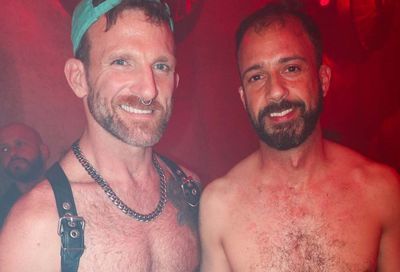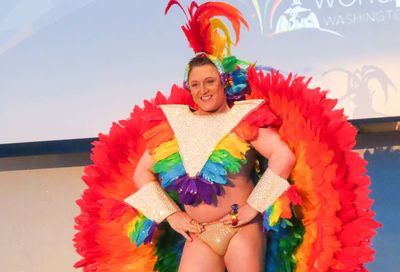‘988’ is the New National Mental Health Hotline for the U.S.
The new three-digit hotline number offers those in need a quicker, easier option to get suicide prevention help.

The United States has a new three-digit number for mental health emergencies — 988.
The new number goes live on Saturday, July 16, 2022, replacing the 1-800-273-8255 number first issued in 2005.
By changing the hotline to a three-digit number — along the lines of 911 — Vibrant Emotional Health, the New York-based nonprofit that administers the Lifeline number, is hopeful more people in need will use the service.
Former President Trump signed the new number into law in 2020 with the National Suicide Hotline Designation Act of 2020. (The former 11-digit number will remain operational for those who choose to use it.)
“It’s a new number, but it’s not a new service,” said Doctor John Draper, executive director of Lifeline. “It’s the same kind of confidentiality you would get at a doctor’s office or at a therapist.”
The hotline willl be equipped to deal with various mental health crises, including self-harm, addiction, and suicidal ideation.
One new aspect of the hotline is bolstered funding for the LGBTQ community, with $7.2 million specifically allocated to provide special services to LGBTQ youth.
Draper told the Washington Post that “all counselors will receive training from experts in providing affirming services to LGBTQIA+ individuals in crisis.”
“If someone has been through a traumatic event and is struggling to process it — and there are traumatic events happening throughout this country — this is a place to turn to,” said Hannah Wesolowski, chief advocacy officer at the National Alliance on Mental Illness, of the new 988 number.
Once someone dials 988, they will be connected to one of 200 local call centers that will direct the caller to the proper community resources or will dispatch emergency services, depending on the situation.
If no one is available at a local call center, the call will be automatically directed to a national call center.
“Having an anonymous opportunity to speak to someone who knows what they’re talking about, who won’t be scared when you say, ‘I don’t know what to do, I’m thinking of hurting myself’ — this is an extraordinary option,” said Dr. Robert Trestman, chair of the American Psychiatric Association’s Council on Healthcare Systems and Financing. “If you’re unsure, call.”
Support Metro Weekly’s Journalism
These are challenging times for news organizations. And yet it’s crucial we stay active and provide vital resources and information to both our local readers and the world. So won’t you please take a moment and consider supporting Metro Weekly with a membership? For as little as $5 a month, you can help ensure Metro Weekly magazine and MetroWeekly.com remain free, viable resources as we provide the best, most diverse, culturally-resonant LGBTQ coverage in both the D.C. region and around the world. Memberships come with exclusive perks and discounts, your own personal digital delivery of each week’s magazine (and an archive), access to our Member's Lounge when it launches this fall, and exclusive members-only items like Metro Weekly Membership Mugs and Tote Bags! Check out all our membership levels here and please join us today!




















You must be logged in to post a comment.